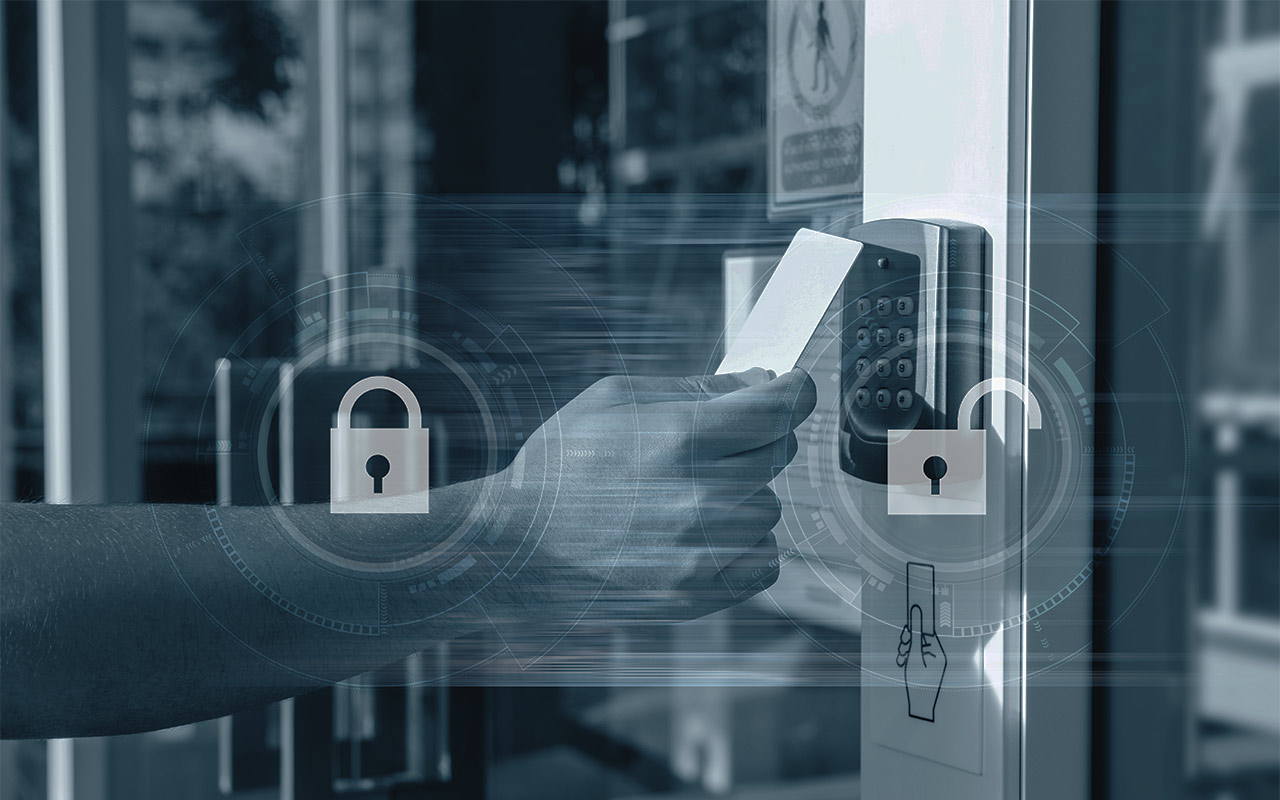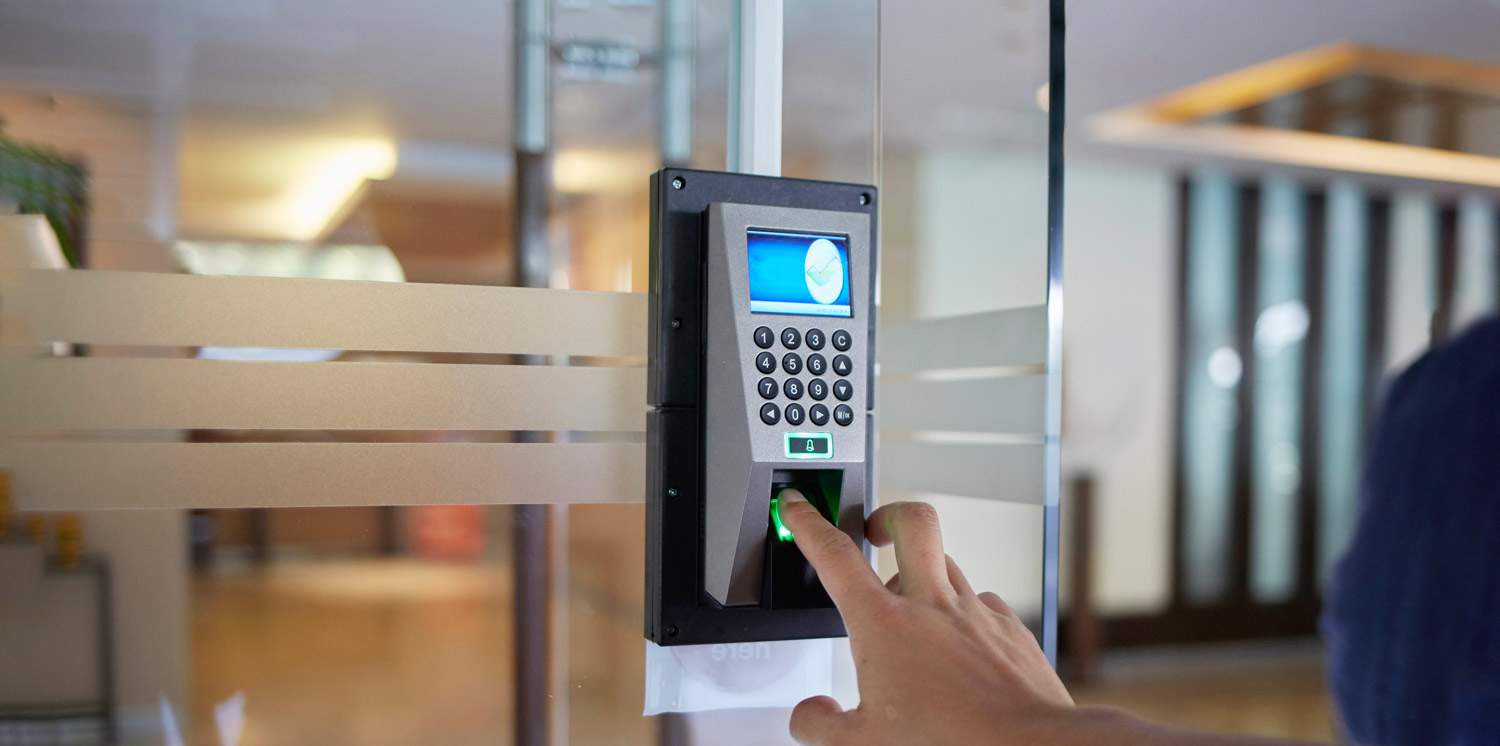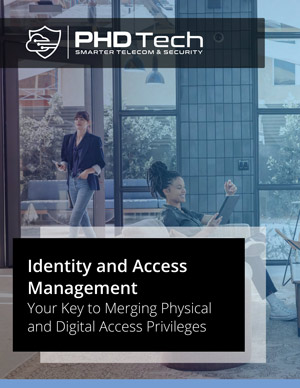Top 10 Reasons Businesses Install Access Control Systems
Top 10 factors driving the need for access control
What business leaders say is behind their decision to implement a physical access control system.
Access Control Systems
Why is access control so important today?
Ever wonder what a PAC is – and why you hear the term so often these days?
What is behind the increased demand for physical access control systems (PACS), and why are so many businesses choosing this security solution? Here’s what market researchers and business executives say.
Overview: physical access control systems
Physical access control is a security measure that enables businesses to authenticate the personnel accessing their physical infrastructure. Authentication can come in various types, including; card-based readers such as proximity and smart cards, biometric readers, mobile pass, and electronic locks and software.
Securing a location, such as a building, parking lot, or office space, is known as physical access control. A physical access control system (PACS) helps organizations oversee and enforce physical security and shields areas of a building or facility from unauthorized access.
The benefit? Controlling access to physical spaces helps organizations minimize risks and protect people and property.
But why is access control such a hot topic? And what are some of the reasons businesses of all sizes are taking steps to ensure access control is part of their overall security plan?
Market researchers weigh in on the increased demand for access control
The physical access control systems market is experiencing significant growth in the US and globally. Polaris Market Research expects a 10.2% CAGR from 2021 – 2030, with the United States claiming the largest market share.
Researchers cite common factors fueling the demand for PACS equipment and software, including:
- Surging need for privacy and enhanced security
- Decreased cost and availability of equipment, especially biometric
- Convergence of cyber and physical security
- Increased demand and complexity of monitoring remote and fluid workforce
- Intensified adoption of cloud-based communication
- Enhanced efficiency and automation of security systems due to IoT secure data exchange and smart device connection
[Research sources: modorintelligence.com, polarismarketresearch.com, factmr.com]
So, researchers agree the physical access control system market is booming – but why are business leaders so interested in PACS? And, what is driving the increased implementation of PACS by organizations of all sizes?
Top reasons businesses implemented physical access control systems
Business leaders today face many challenges. Security concerns are usually at or near the top of the list when asked what keeps them up at night. So the rapid rise in the popularity of access control systems as part of a unified security plan makes perfect sense due to the proven capabilities of risk mitigation from unauthorized access.
But we wanted to dive a little deeper. Here’s a list of the most common reasons executives cited for implementing an access control platform to enhance protection for their people and property:
Rising Security Threats
The world is witnessing increased security threats, including terrorism, workplace violence, theft, vandalism, and unauthorized access, which pose significant risks to the safety of employees, visitors, and organizational assets. Business leaders recognize the need to tackle these threats proactively.
Increased Security Awareness & Apprehension
The general public, including employees and customers, has become more aware and concerned about security. Organizational leaders address these concerns by demonstrating a commitment to providing a secure environment through effective access control measures.
Regulatory & Insurance Compliance
Many regulatory bodies and insurance providers require businesses to implement adequate security measures, including access control systems. Compliance with regulations such as HIPAA (healthcare), PCI DSS (financial services), or data protection laws necessitates robust access control measures to protect sensitive information and maintain privacy. Failure to comply with these requirements can lead to penalties, higher insurance premiums, or denial of coverage.
Intellectual Property Protection
Businesses possess valuable intellectual property, proprietary information, and sensitive data that need protection. Unauthorized access or breaches can lead to financial loss, reputational damage, and compromised competitive advantage. Access control systems help safeguard these valuable assets by restricting access to sensitive areas and data storage, thus mitigating risk.
Workplace Safety and Peace of Mind
Maintaining a safe work environment is crucial for employee well-being, productivity, and morale. Access control systems help mitigate risks associated with internal threats, such as workplace violence, by restricting access to certain areas and enabling prompt identification and response to incidents, providing an additional layer of defense against potential threats.
Data Security and Privacy
In today’s digital age, protecting digital assets and data is crucial. Unauthorized physical access to server rooms, data centers, or network infrastructure can lead to data breaches, unauthorized system changes, or disruptions. Access control prevents unauthorized personnel from entering areas where critical IT infrastructure resides.
Operational Efficiency
Access control systems provide businesses with efficient and streamlined management of access permissions. Automation and centralized control reduce administrative overheads associated with managing physical keys, rekeying, and manual access control processes. This increased efficiency helps organizations increase productivity and reduce costs.
Reduction in the High Cost of Security Breaches
Security breaches can have severe financial implications for businesses. Incidents such as theft, property damage, legal consequences, and reputational damage can result in significant financial losses. Implementing robust access control systems can help prevent or minimize these risks.
Adaptation to Evolving Work Environments
Modern work environments are evolving, with remote work, flexible schedules, and shared workspaces becoming more common. Managing access rights and ensuring the security of individuals in such dynamic environments necessitates more sophisticated and accommodating solutions, such as cloud-based access control systems.
Technological Advancements
Evolving technology is a multi-faceted factor for many business leaders. First, the technology advancement for access control systems has advanced significantly, offering innovative features like biometric authentication, mobile credentials, cloud-based management, and integration with other security systems.
This advanced technology also makes access control systems more widely available and affordable for organizations of all sizes. Businesses recognize the potential benefits of adopting these technologies to enhance security and adapt to changing needs.
On the other hand, the potential for threats has evolved with technological advancement. Cyber attacks, data breaches, and unauthorized access through hacking or credential theft have become significant concerns that can be addressed with effective access control measures.
In summary, businesses are looking for better ways to control access to buildings and facilities to address the evolving security landscape, protect their people and property, comply with regulations, and mitigate risks associated with physical and data security.
Recognizing the need for a holistic security approach, business leaders are integrating access control systems into their overall security strategy alongside video surveillance, intrusion detection, visitor management, and emergency response systems.
Share:
About PHDTech
PHDTech: Smarter Telecom & Security.
PHDTech provides cloud-based VoIP and Commercial Security Solutions that help businesses harness the full power of technology to scale profitably, efficiently, and securely. PHDTech’s innovative solutions include VoIP & Business Telecom, Business Video Surveillance, Visitor Management, Access Controls, and Structured Cabling.
Looking for the right
access control solution for your business?
Schedule your Complimentary Vulnerabilities Analysis today.
Latest Insights
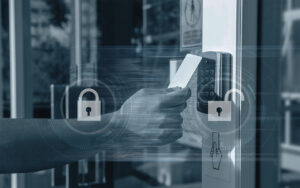
Top 10 Reasons Businesses Install Access Control Systems
Top 10 factors driving the need for access control What business leaders say is behind their decision to implement a physical access control system. Access

16 Benefits of Access Control Systems for SMBs
An essential component of physical security, cloud-based access control systems have emerged as a preferred way to manage access to physical places for SMBs and organizations of all sizes needing to protect their people and property.
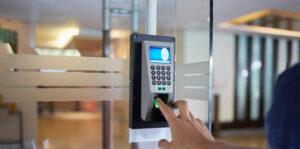
What is Physical Access Control?
Can controlling door access reduce workplace violence and decrease theft and vandalism? A recent study cites a 90% reduction – find out what access control systems are, and how they can benefit your business.


